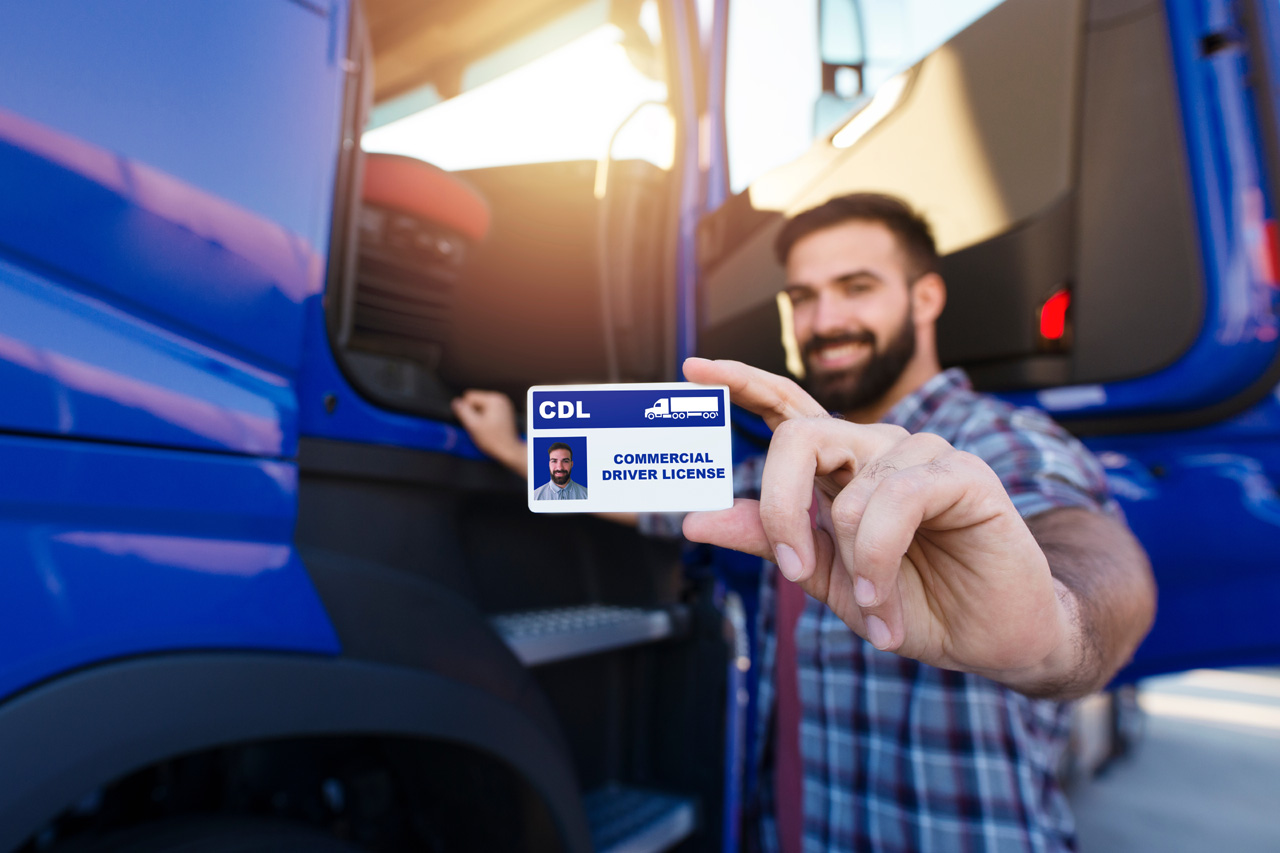Can You Get a CDL License After Your License Has Been Downgraded?

Securing a Class B CDL marks an impressive starting point in the trucking industry, but obtaining a Class A commercial driver’s license (CDL) can elevate your career even further. But what exactly sets these two apart? A Class B CDL qualifies you to drive single vehicles such as delivery trucks, dump trucks, buses, and cement mixers. On the other hand, acquiring a Class A CDL authorizes you to handle combinations of vehicles, including tractor-trailers, flatbeds, livestock carriers, and various truck and trailer combinations.
Transitioning from a Class B to a Class A license broadens your employment prospects. As a Class A CDL holder, you are eligible to operate all vehicles that a Class B license covers, plus more complex combinations, typically resulting in higher compensation. This upgrade promises increased income and ensures more consistent employment and a more comprehensive range of job options. You may upgrade your CDL license anytime upon completing appropriate skills tests and compliance with MVA requirements.
Differences Between CDL Class A, B, and C Licenses
Here is an overview of the CDL classifications in Maryland:
- Class A: This classification is for vehicles with a Gross Combination Weight Rating of over 26,001 lbs and the capacity to tow vehicles over 10,000 pounds. With a Class A license, you are authorized to drive large vehicles like 18-wheelers and have the flexibility to operate any vehicle in the lower classes.
- Class B: Classification for vehicles with a Gross Vehicle Weight Rating of over 26,001 pounds or more but with a towing capacity of less than 10,000 pounds.
- Class C: This class includes vehicles with a GVWR of less than 26,001 pounds made to haul 16 or more passengers, including the driver. This class requires the driver to have an endorsement.
According to 49 CFR 383.5, a “CDL downgrade” involves revoking commercial driving privileges. The regulation mandates that Maryland must finalize and document this downgrade within 60 days of being notified. There are two reasons why a CDL license may be downgraded in Maryland. The first is based on the fundamental and crucial safety principle that states drivers may be legally barred from operating a commercial vehicle due to drug or alcohol misuse or refusal to undergo testing and should not possess a valid Commercial Driver’s License (CDL).
Additionally, when a driver is no longer medically qualified to operate a commercial vehicle, or if they choose not to be examined for such qualification, drivers must immediately visit a Maryland Motor Vehicle Administration (MVA) office to downgrade their non-commercial license. This process can also be initiated if a driver no longer needs a CDL’s commercial driving privileges.
Attorney Hillel Traub was a former lawyer for the MVA and possesses specialized knowledge regarding CDL licensing requirements. If you have been charged with a CDL-related DUI or moving violation that may impact your driving privileges, contact us right away for an assessment of your case.
How to Upgrade Your Commercial Driver’s License in Maryland
You must first acquire a Maryland commercial learner’s permit. The process involves a vision screening and one or more knowledge tests. After obtaining your commercial learner’s permit, you must keep it for a minimum of 14 days. During this period, adhere to the following restrictions and requirements:
- A supervising driver who is at least 21 years old must be present. This driver should have possessed a valid CDL of the same or higher class for at least three years. They must have a Medical Examiner’s Certificate (DOT card) or its photocopy, an exemption/waiver if needed, and occupy the front seat without other front seat occupants.
- Always carry your DOT card (or its photocopy) and any applicable exemption or waiver.
- If your permit has a CDL Intrastate Only (K) restriction, you are limited to driving within Maryland.
The next phase involves scheduling a skills test at an MVA full-service branch office. On your test day, bring the following:
- A suitable vehicle with valid registration.
- Your Maryland commercial learner’s permit and current CDL.
- Your Medical Examiner’s Certificate (DOT card), copy, and any waiver or exemption.
- A supervising driver if you are driving to the office.
- Glasses or contact lenses if required.
- TSA assessment letter for hazardous materials (H) endorsement, including the hazmat law test if not previously completed.
At the office, you will first undergo the skills tests. Upon passing, an agent will:
- Collect your learner’s permit and current CDL.
- Take your photo (see MVA photo guidelines).
- Review your documents.
- Confirm your eligibility.
- Sign the application.
After completing these steps, the agent will issue your new upgraded CDL.
Speak With a CDL Violations Lawyer at The Law Office of Hillel Traub
CDL licensing requirements are complex and may be impacted if you have been charged with a DUI or moving violation. At The Law Office of Hillel Traub, we have over 30 years of experience guiding CDL drivers through the legal process and protecting their livelihoods. As a former lawyer for the MVA, attorney Hillel Traub is here to help you understand Maryland’s licensing requirements and regulations.
For a free consultation, call us today at (410) 580-1100 or fill out a contact form.